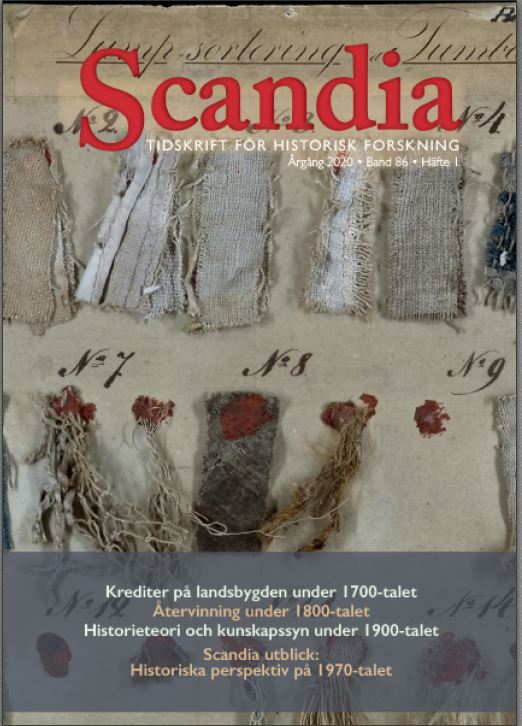Private Wealth Accumulation in Eighteenth Century Scandia
Intergenerational credit businesses and rural debt logic in Oppmanna
DOI:
https://doi.org/10.47868/scandia.v86i1.21861Keywords:
credits, promissory notes, urbi–pagan encounters, personals, probate inventories, debt litigationsAbstract
From the introduction: "This study sets out from the empirical observation that eighteenth century farmers in north-eastern Scania, in the very south of Sweden, began accumulating financial wealth in the form of both public banknotes and private promissory notes. Based on a kind of fractional reserve banking, banknotes were obviously used to guarantee a more extensive issue of private promissory notes, which at the same time served as legal tender or means of payment in the local area. This is an examination of how these farmers emerged in Oppmanna parish and how they invested and passed on the return on the money they lent to their sons and daughters. The research question thus focuses on creditors and how they operated, as well as how potential borrowers knew about available funds in their local community."





